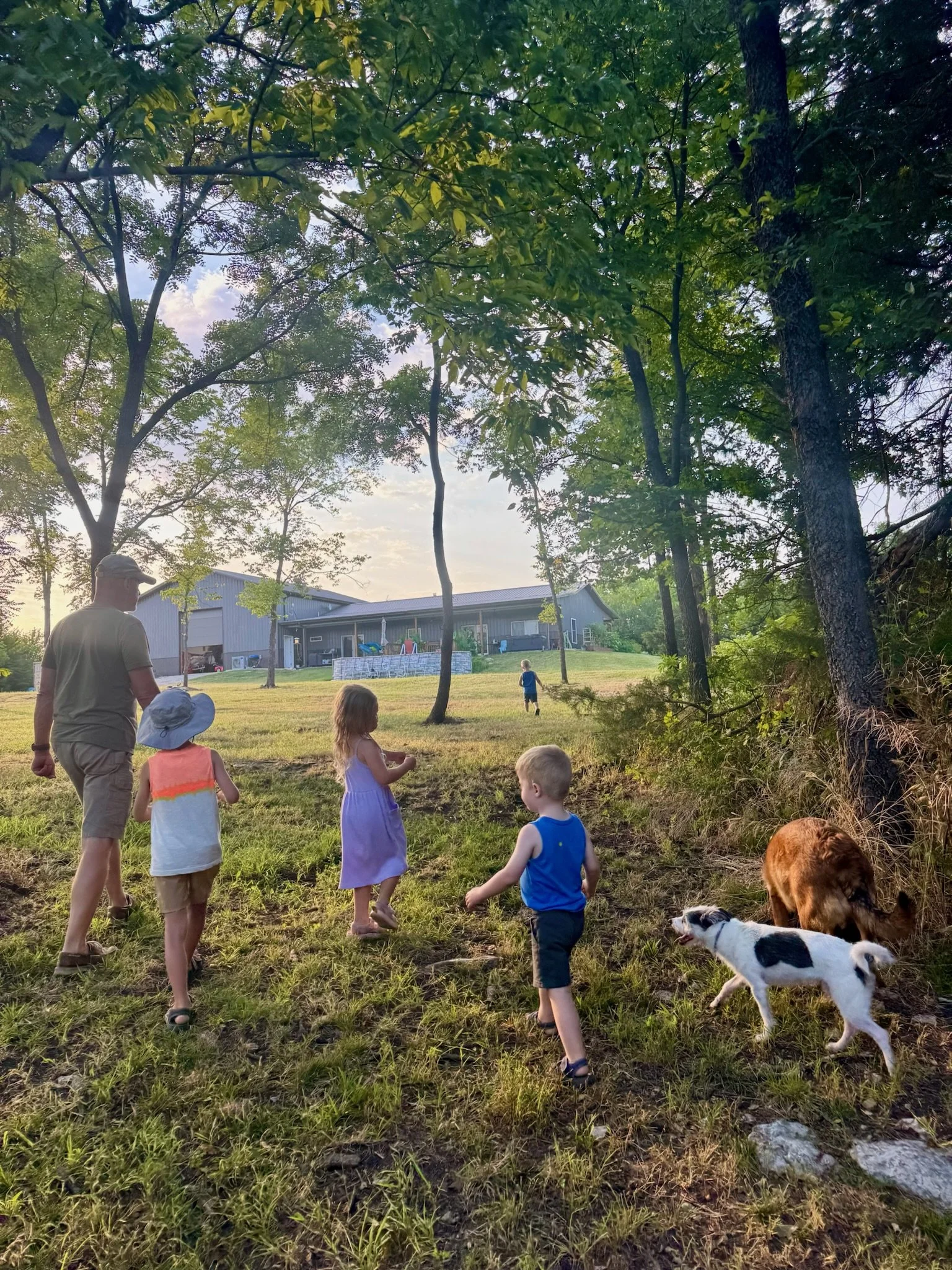August 2025
Schools In…And I’ve Got Mixed Feelings
Exploring with Grandpa
As a dad, the back-to-school season stirs up a lot of emotions for me. On one hand, I love watching my kids grow, learn, and take on new challenges. There’s comfort in the rhythm that a school schedule brings. On the other hand, I can’t help but remember the dread I felt as a kid when summer was winding down.
By August, I had the “Sunday Scaries” on steroids—knowing that freedom was almost gone, and that I’d soon be trapped inside a classroom. Sitting still, learning about things that didn’t seem relevant to me, was torturous. Looking back, I sometimes wonder if I would’ve been better off starting a career right away instead of going through college and grad school.
That question will shape how Shelby and I guide our kids when they’re older. Will we encourage them to go to college? Honestly, I don’t know. It feels strange to say that, but I can’t in good conscience push them into crushing student debt without a clear sense of how it will pay off.
Ironically, I may have gone to school longer than anyone who didn’t actually enjoy it. My master’s degree wasn’t part of a grand plan—it was more of a plan in place of not having one. Ten years into a career in higher education, I hit a wall. I had climbed the ladder quickly, but realized I needed a change. The hours weren’t family-friendly, and the pay wasn’t going to allow me to support a growing family the way I wanted to.
For me, college wasn’t optional—my parents made that clear. And their reasoning made sense: get an education, set yourself up for success. In many ways, they were right. Only 38% of U.S. adults hold a bachelor’s degree, and just 10% hold a master’s degree. Having a degree does give you a leg up, and no one can take it away from you.
But in my case? After 19 years of schooling, it feels like an abstract failure. The saving grace: I went to state schools, earned a scholarship for grad school, worked along the way, and left with two degrees and zero debt. That’s rare.
Looking back, I see both the strengths and flaws in traditional schooling. On the positive side, it gave me space to explore ideas/theories. That kind of exploration matters in a world that isn’t black and white. It shapes more empathetic and flexible communities. But formal schooling often feels one-size-fits-all—like downloading a workout plan online. It can work, but it’s not always the most effective.
The public school system is overburdened and understandably focused on kids who need extra help. But what about the other 80%? How do we make sure every child is truly challenged and supported to maximize their unique gifts? My guess is that it falls on parents like Shelby and me to fill the gaps.
And that’s exhausting—especially in households where both parents work just to keep up with the cost of living. No wonder so many of us feel burned out.
Still, I’m hopeful. I think we’re starting to rethink education, and to recognize how important play—especially unstructured, outdoor play—is to learning. In our small experiment at the Gail house, we’ve noticed our kids are happier, more creative, and more imaginative when we’re outside. And truthfully, so are Shelby and I.
So as school gets underway this year, my encouragement is simple: get outside with your kids. And if you’re feeling brave, leave your phone in the car.


